Scientific Name: Cinnamomum Zeylanicum
Origin: India
Plant Part: Leaves
Scent: Sweet, Spicy, and Woodsy
Color: Pale Yellow Dark Brown Liquid
Consistency: Oily
Perfumery Note: Middle
Initial Aroma Strength: Medium
Extraction Method: Steam Distilled
Cinnamon Leaf Essential Oil: Benefits, Uses, and Blends
The first thing you need to know when looking at Cinnamon Oils is the difference between Cinnamon Leaf Essential Oil and Cinnamon Bark Essential Oil. Each of these oils comes from the same genus of tree, the Cinnamomum, but as the name indicates each is from a different part. Most people are familiar with Cinnamon as a common spice. Its fragrant aroma comes from Cinnamaldehyde, which is one of Cinnamon Leaf Essential Oil’s major components.
In addition, Cinnamaldehyde acts as an antimicrobial agent, showing effects against many different strains of bacteria. The leaf also contains Eugenol, which is known to be an antioxidant and an anti-inflammatory.
Historical Use of Cinnamon Leaf Essential Oil
The use of Cinnamon, known as “Kwai” in Chinese, dates back to 2800 BCE. It was depicted in a story from the Bible, used by the Egyptians for embalming processes, and by the Romans for medicinal and burial purposes. Cinnamon is also partially responsible for the discovery of the New World, as it was one of the spices that led Christopher Columbus to embark on his exploration.
Modern Uses of Cinnamon Leaf Essential Oil
Today Cinnamon grows mainly in China, Sri Lanka, Indonesia, and Vietnam. Cinnamon Leaf Essential Oil uses range from cosmetics, perfumes, and household products, all the way to holistic medicine. Studies show it can potentially eliminate free radicals in the body, decrease inflammation, and even help reduce symptoms of Parkinson’s disease. Cinnamon Leaf Essential Oil has also shown promise regarding cancer treatment and the treatment of cardiovascular diseases.
Cinnamon Leaf Essential Oil Benefits: Component Breakdown
- Cinnamaldehyde: Cinnamaldehyde is a common flavoring ingredient in many foods and beverages. Another common use is as an insecticide, as it is very effective in killing mosquito larvae. Several studies show promise regarding Cinnamon Leaf Essential Oil and inflammatory conditions. Cinnamaldehyde has also shown positive effects in preliminary studies looking at the treatment of inflammation. These studies indicate cinnamaldehyde has an anti-inflammatory effect on macrophages, which are a type of immune cell that plays a large role in the body’s inflammation process.
- Cinnamyl Acetate: This component is an acetate ester, used in both insecticides and fragrances. Cinnamyl Acetate is responsible for a lot of benefits of Cinnamon Leaf Oil.
- Eugenol Acetate: Eugenol acetate belongs to the phenol ester group, with a sweet, Clove-like aroma and fragrance. Its most common use is as a flavoring additive.
- Benzaldehyde: Benzaldehyde is in the aldehyde group, with an odor reminiscent of almonds. It is used as a flavoring agent, a pharmaceutical, and as an ingredient in perfumes and dyes.
Cinnamon Leaf Essential Oil Uses: For Wholesale Purposes
Demand for essential oils was approximately 247 kilotons during the pandemic year of 2020. Market researchers anticipate demand will continue to rise by approximately 7.5% per year, compounded, from now until 2027. Aromatherapy is becoming increasingly more common as people begin to realize what it can offer in terms of fragrance, health, and well-being. Cinnamon Leaf Essential Oil also makes a great addition to many day-to-day products, which we will now discuss in further detail.
Hair Care
Haircare is one of the significant Cinnamon Leaf Essential Oil uses. On a day-to-day basis, you regularly expose your hair to the effects of sunlight and hair products, both of which can cause oxidative damage. This means that the intake of antioxidants is also important for the hair! Using Cinnamon Leaf Essential Oil for hair can help protect and prevent this damage.
One of the known causes of cancer is the presence of free radicals in the body. Free radicals happen when there are unpaired electrons in the body, which come from the splitting of oxygen atoms. Electrons don’t like to be alone, so they are constantly searching for a pair. When there are too many free radicals in the body, oxidative stress occurs, leading to cell damage. The antidote to free radicals is antioxidants. This is because antioxidants can offer up an electron for free radicals to pair with, without becoming destabilized themselves. Cinnamon Leaf Essential Oil contains phenolic compounds that show evidence of antioxidant activity against certain free radicals.
In addition to oxidative damage, many shampoos and conditioners contain chemicals that can strip your hair of moisture and irritate the scalp. This is why at VINEVIDA we strongly support companies who use only natural ingredients. Using essential oils is a safe alternative to potentially harmful fragrances and chemicals.
Massage Therapy
Massage therapy may be beneficial for many different ailments, including arthritis, MS, sciatica, and traumatic injury. Cinnamon Leaf Essential Oil is what is known as a warming oil, which means it gives off heat when applied topically. This heat can help ease the symptoms of muscle pain and joint soreness when used correctly. Using essential oils in massage oil is a safe alternative to synthetic fragrances, which harbor toxic chemicals. Anecdotal evidence reports Cinnamon Leaf Oil can also potentially provide mood-enhancing effects, decreasing feelings such as anxiety, depression, and stress.
While more research is necessary, preliminary studies show Cinnamon Leaf Essential Oil offers promising results regarding the treatment of some neurological disorders. Some of these neurological disorders include Parkinson’s and Alzheimer’s, among others.
Other studies show indications Cinnamon Oil may be effective in treating certain types of cancer. The same property that gives Cinnamon its aroma— cinnamaldehyde—shows indications of prohibiting tumor growth.
There is also evidence Cinnamon Oil can reduce cholesterol levels in the body, as well as producing hypotensive effects. Both of these have links to cardiovascular disease and are important to keep regulated. In addition, a similar study looked at the effects of Cinnamon Oil on myocardial ischemia and found positive results in terms of treatment.
Soap and Candles
The powerful fragrance of Cinnamon makes it a fantastic choice to add to homemade soaps and candles. If you want to try your hand at making your own candles, check out our blog post to learn all the tips and tricks. Commercial candles expose consumers to many toxins, including the known carcinogens given off when paraffin is burned. Estimates expect the candle market to reach over USD 13 billion by 2026.
 Candles made from natural sources sell at a higher price, but consumers are willing to pay if it means they receive transparency. Research shows fragrance is one of the most important factors for candle consumers, reiterating the importance of scent. The scent of Cinnamon is universally loved, and it makes a great festive addition to candles and soaps.
Candles made from natural sources sell at a higher price, but consumers are willing to pay if it means they receive transparency. Research shows fragrance is one of the most important factors for candle consumers, reiterating the importance of scent. The scent of Cinnamon is universally loved, and it makes a great festive addition to candles and soaps.
Suitable Blending Oils
However you choose to use Cinnamon Leaf Essential Oil, there are plenty of fragrance combinations to choose from. To add some Cinnamon spice to your life, try mixing one drop each of Clove and Cinnamon Oils with five drops of Vanilla Essential Oil. You can also mix Cinnamon with Cedarwood or Balsam Fir Oil, then add something citrus such as Orange or Grapefruit, to give your room an autumn vibe.
Cinnamon Leaf Essential Oil: DIY
Cinnamon Leaf Essential Oil has also shown potential as an antimicrobial agent. These properties—in combination with its sweet, spicy aroma—make it the perfect addition to natural cleaning products.
Grab a spray bottle and add 8oz each of distilled water and vinegar, then add in about 18 drops of Cinnamon Leaf Essential Oil. Shake to combine and it is ready for use. Store in a dark, cool place to help prevent evaporation.
Is Cinnamon Leaf Essential Oil Safe for Pets?
No. While Cinnamon spice might be delicious for people, it isn’t something your pet should be ingesting. The American Kennel Club explains Cinnamon is toxic to dogs, particularly at strong concentrations such as those found in essential oils. Your pet should never ingest or come in direct contact with Cinnamon Leaf Essential Oil.
Precautions
Many online websites recommend adding Cinnamon Essential Oil to various drinks and recipes, but this is inadvisable. Water and oil don’t mix well, which means if you add Cinnamon Essential Oil to water and drink it, it will separate the body and can cause burning. Take a look at this article for more information about the dangers of ingesting essential oils.
Cinnamon Leaf Essential Oil is very concentrated. This means if you do not use it with caution, it can cause ill effects. Always seek the advice of a medical professional before introducing new methods of treatment. If you wish to apply Cinnamon Oil topically, don’t forget to dilute it with a carrier oil first.
Flash Point
88 °C
Conclusion
No matter which combination of essential oils you use—or how you choose to use them—they can offer plenty of benefits. Cinnamon Leaf Essential Oil, in particular, has a variety of potential health and wellness benefits. Get in touch with us if you have any questions about this versatile spice!

- Reviews
- Questions
Absolutely love
This is the perfect cinnamon scent!! We love it so much and will continue to purchase for our products.
You may also like
Recently viewed

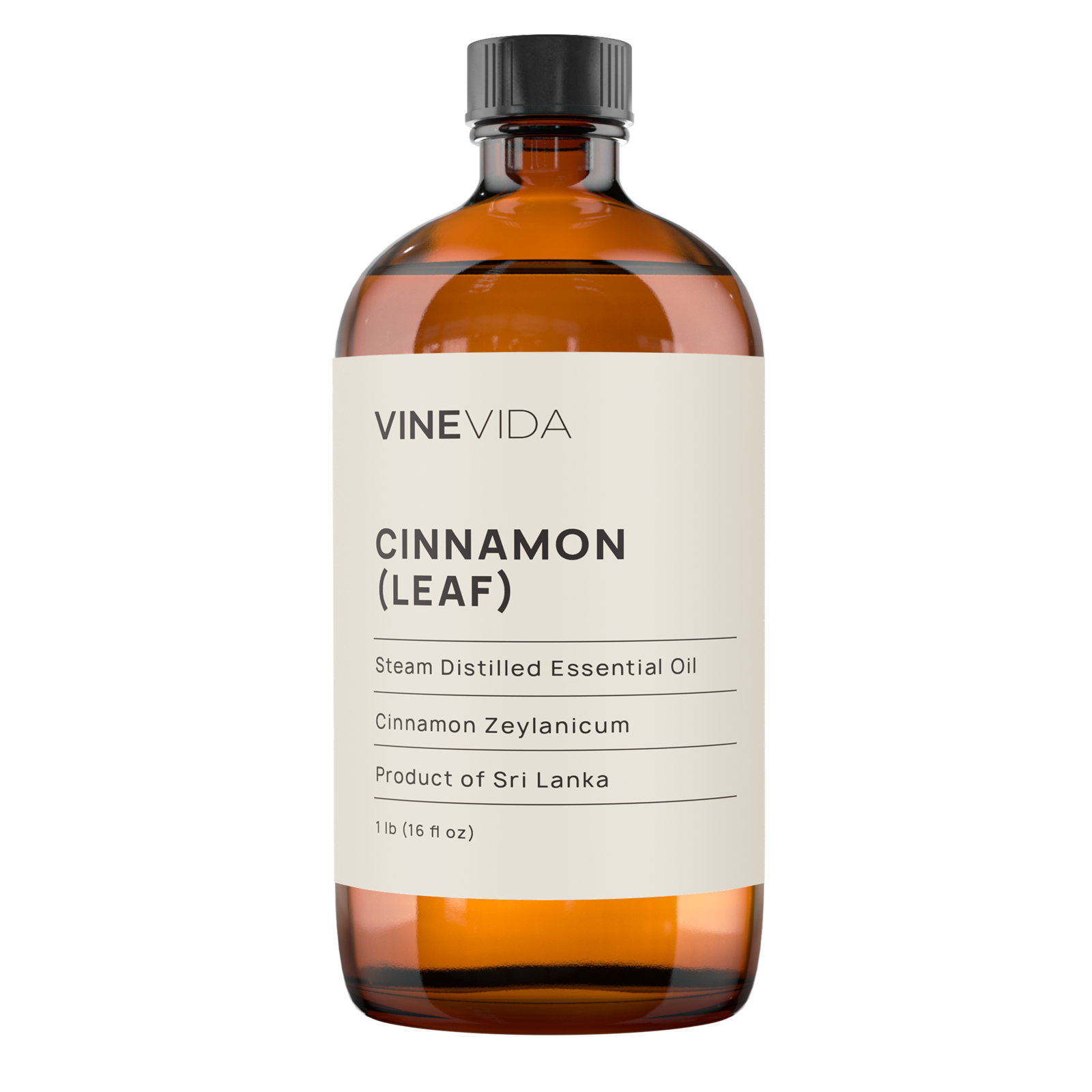
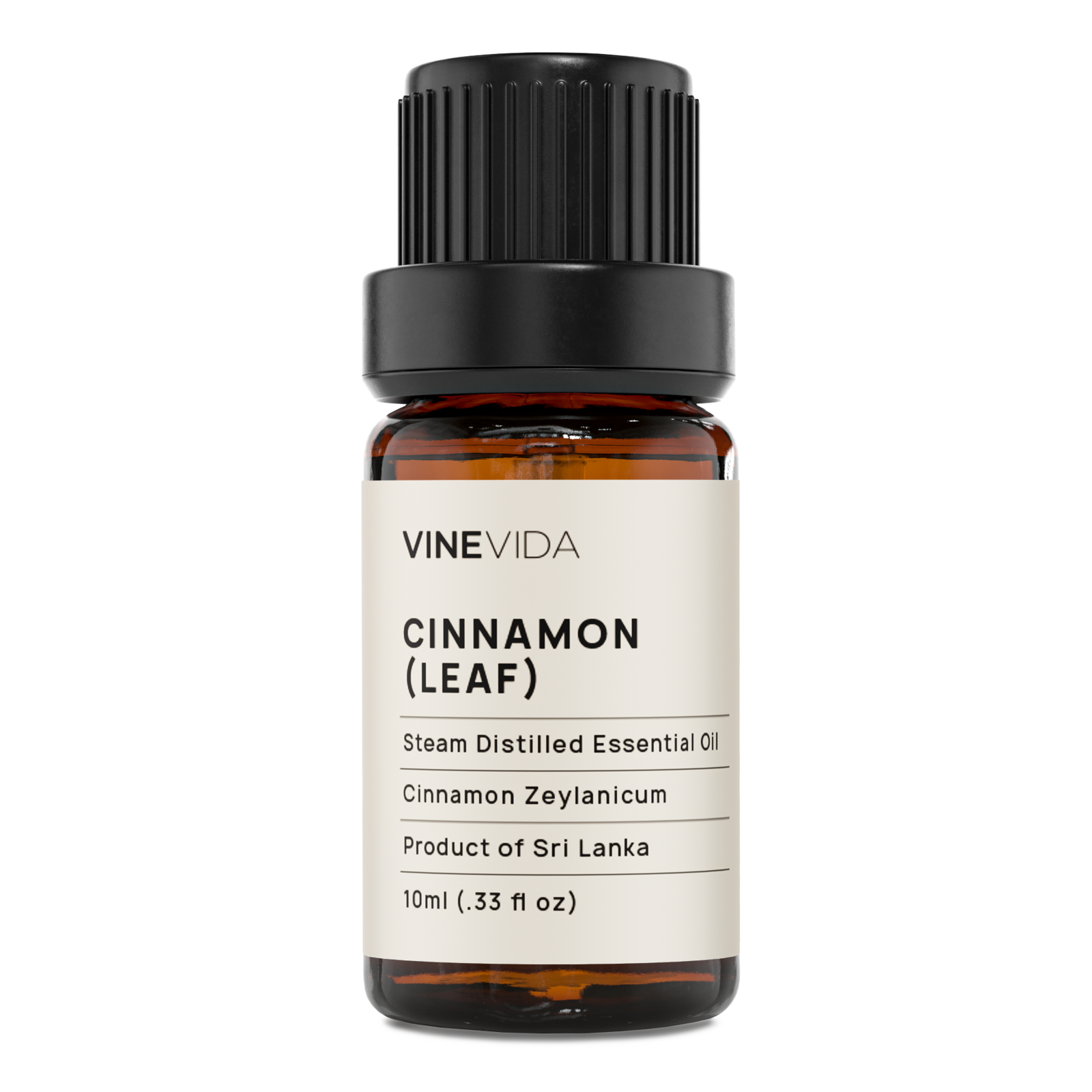
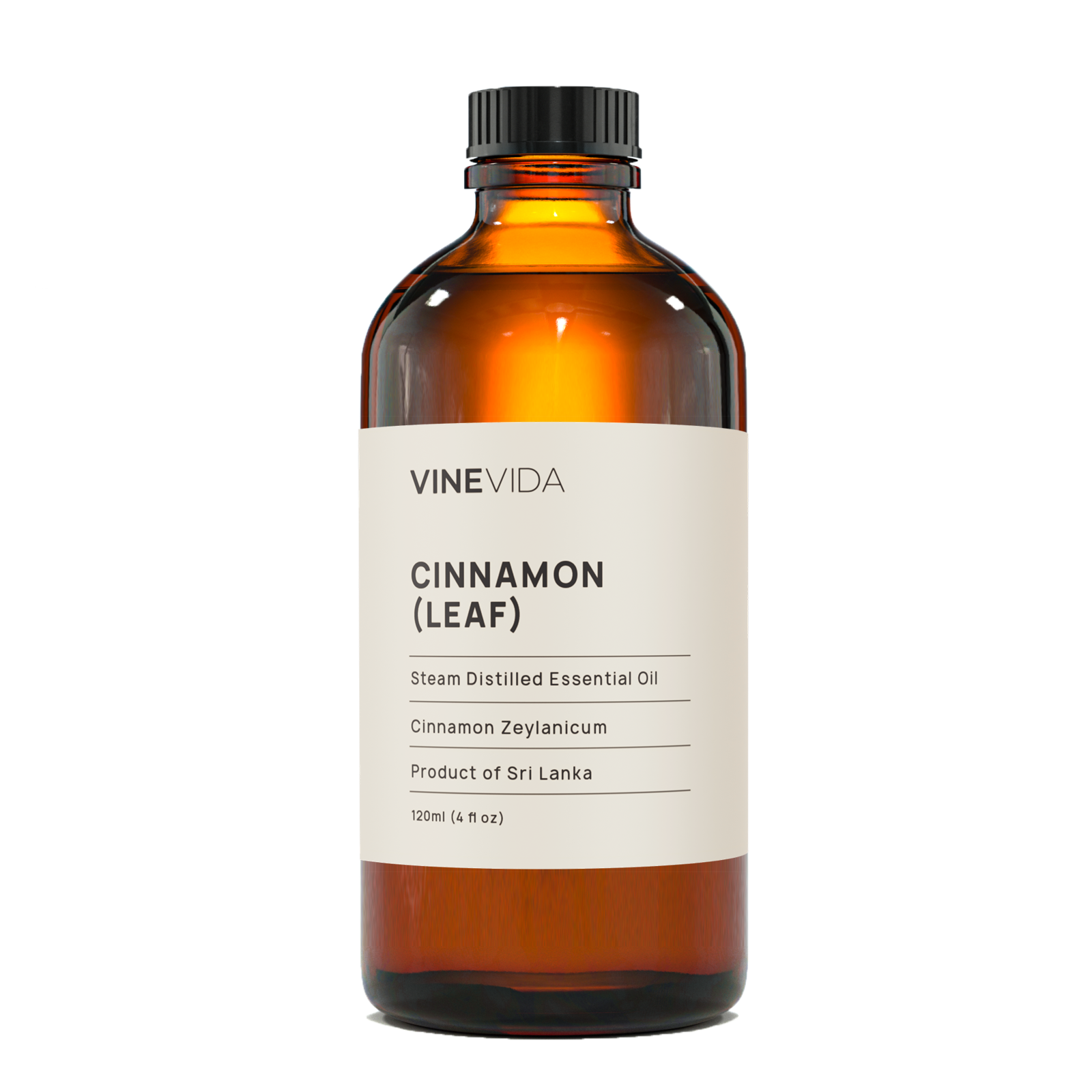
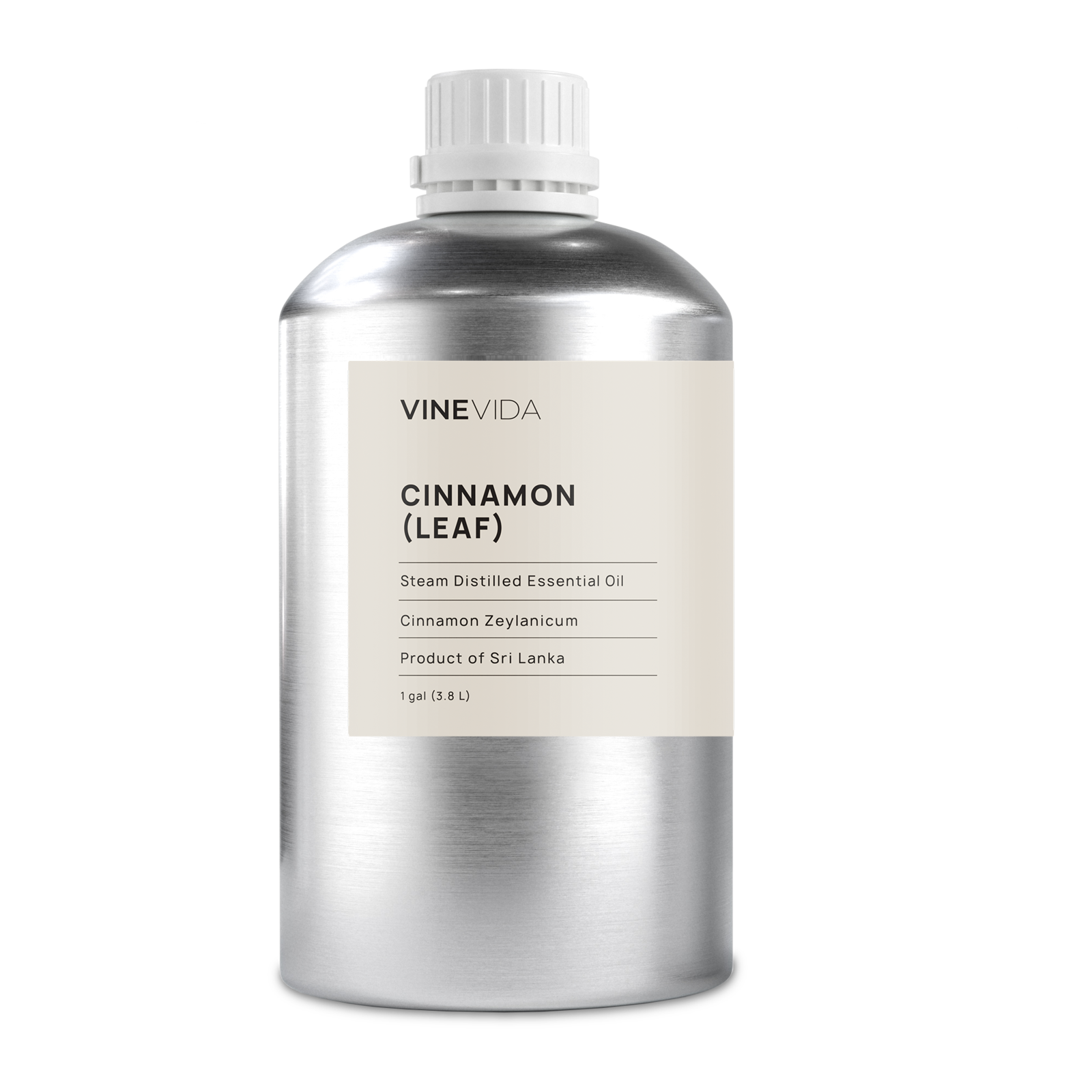
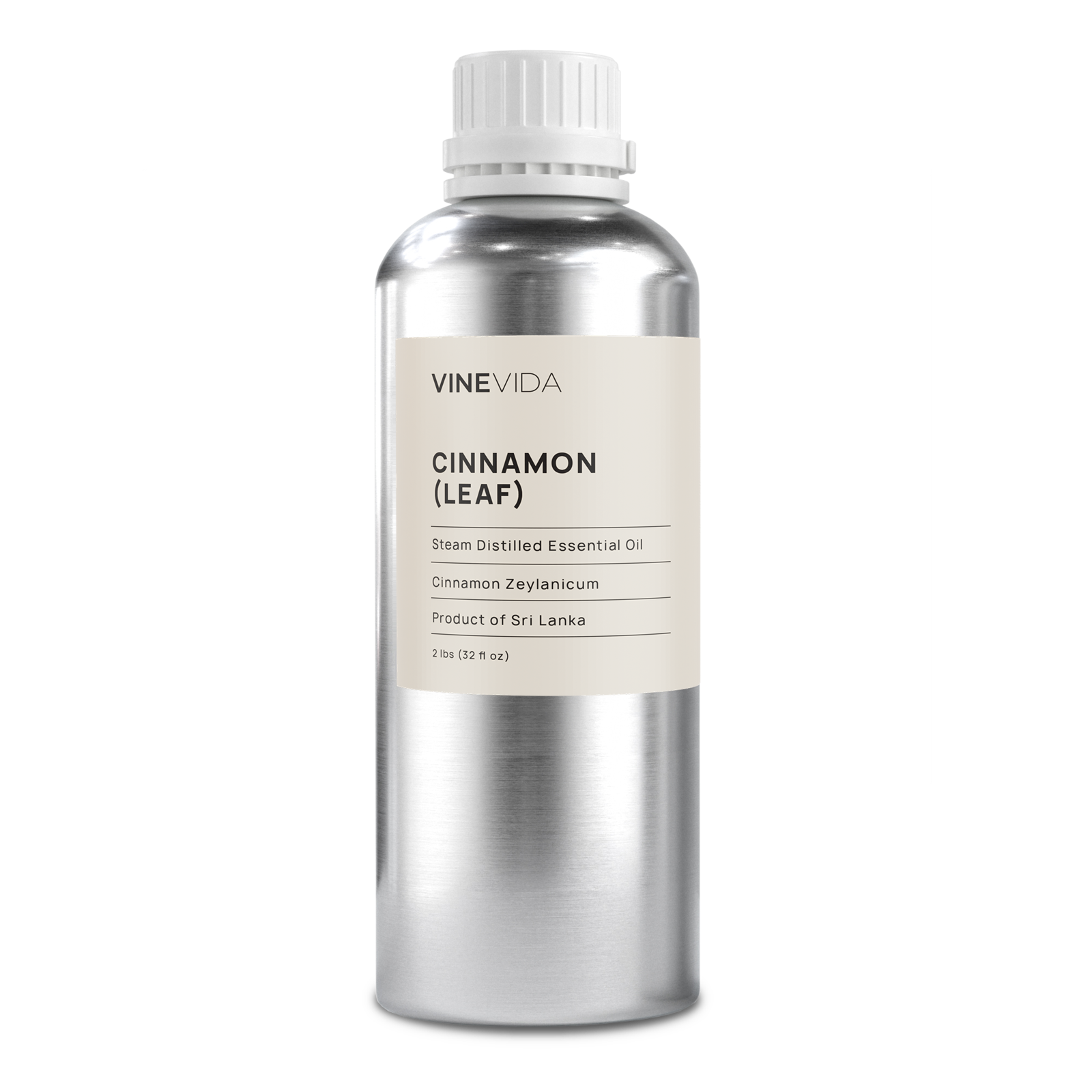
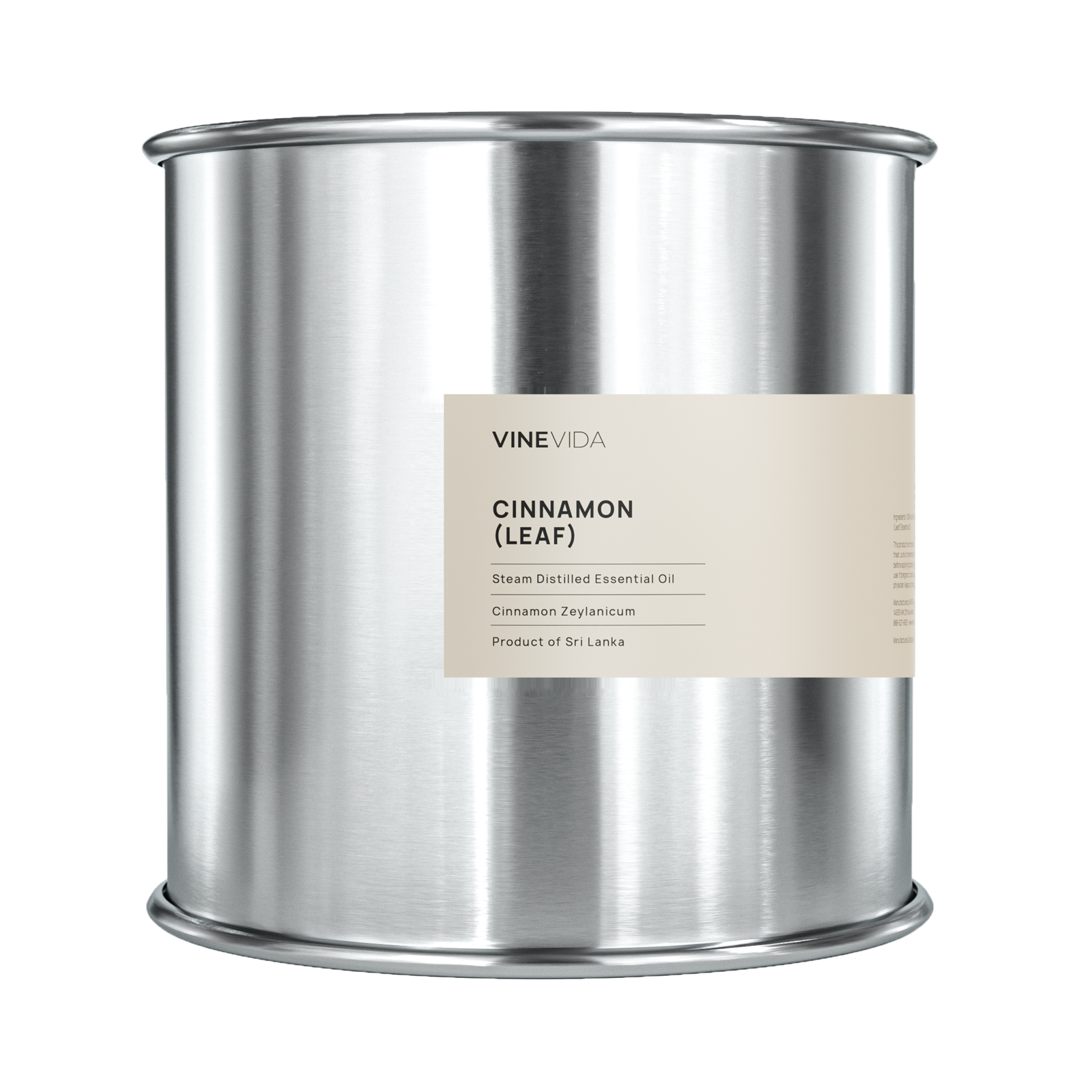
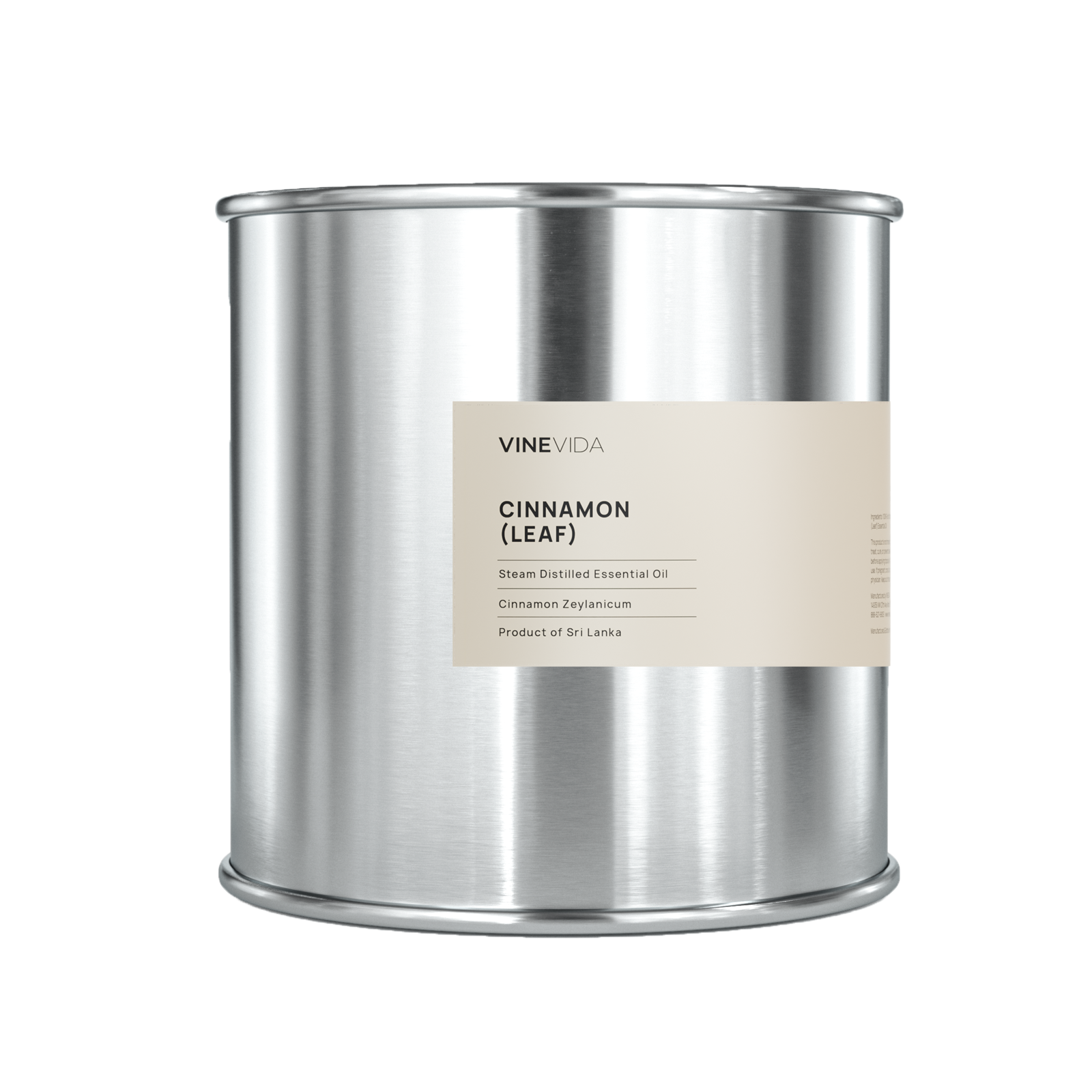
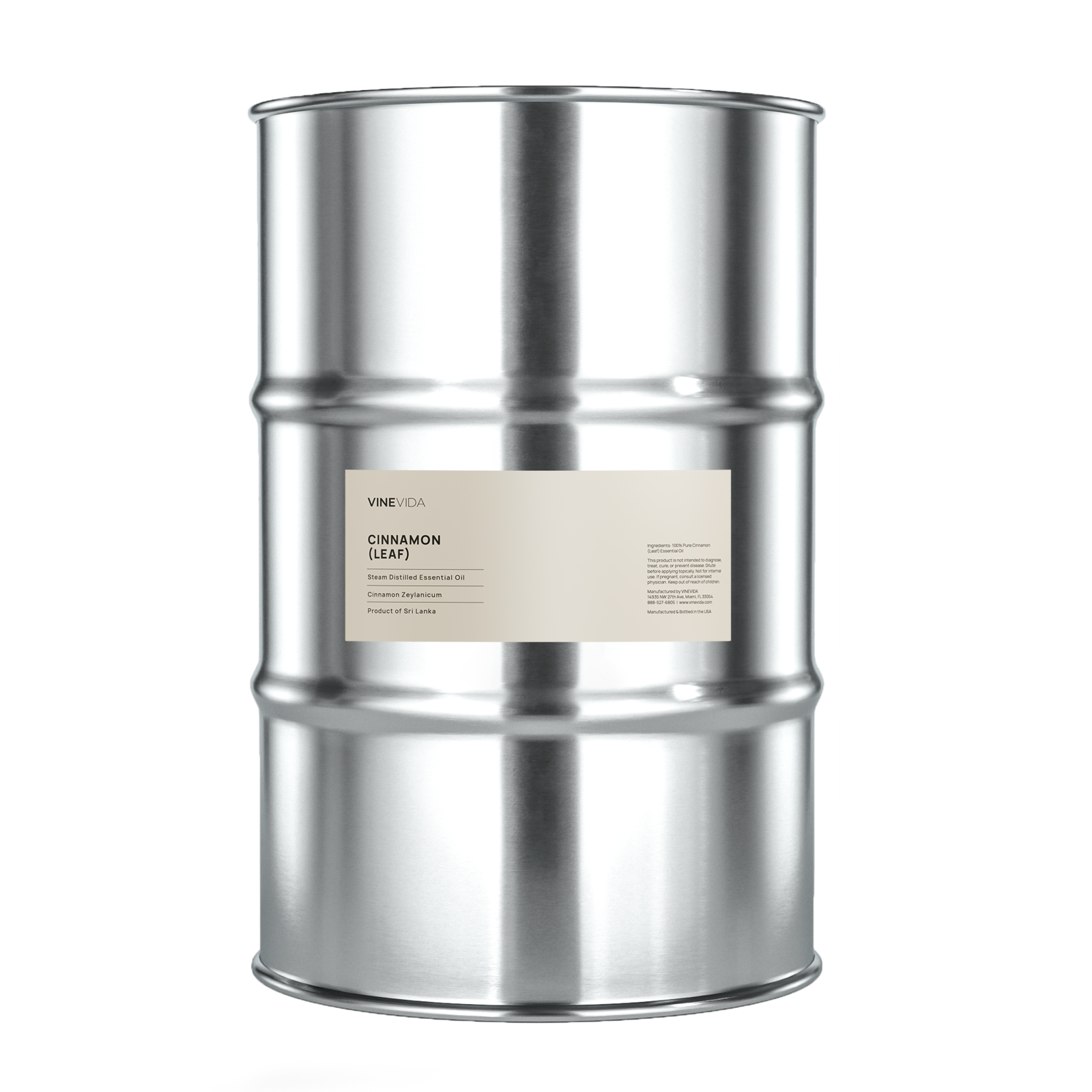





 Safety Data Sheet
Safety Data Sheet


















